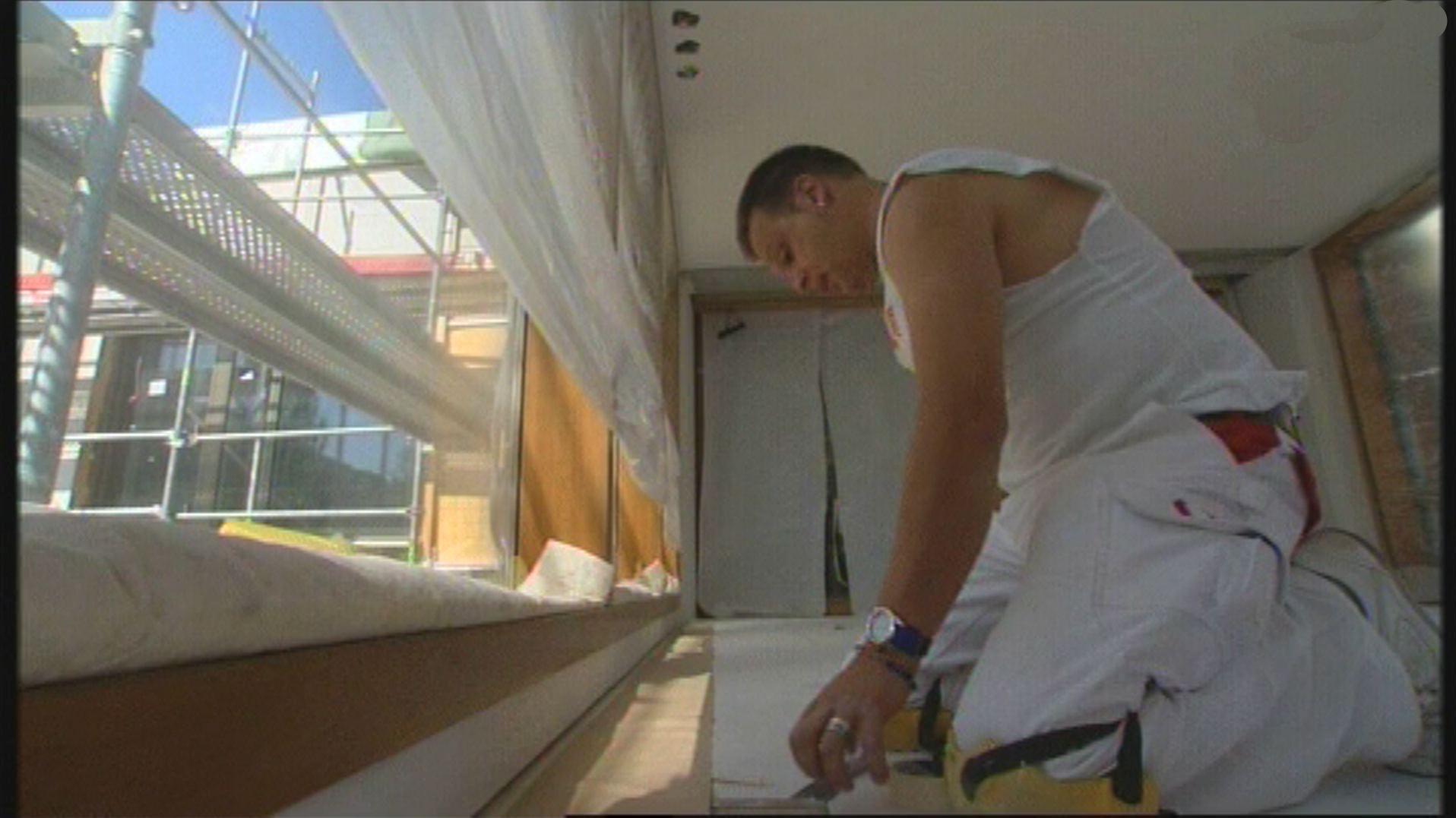Immigration debate focuses on job market

The free movement accord between Switzerland and the European Union has become a major discussion point in the lead up to this autumn’s federal elections.
While some politicians are calling for it to be thrown out so the country can regain its freedom of manoeuvre, unions are demanding better wage protection and warning there will not be enough staff in some sectors in the years to come.
Since the free movement accord became effective in 2002, the equivalent of more than 286,000 full-time positions have been created in Switzerland.
According to the Federal Statistics Office, 85 per cent of them were generated in the health and social sectors. The construction sector has been another driver of job creation, with the equivalent of 35,200 new jobs.
The number of workers in the country increased by eight per cent between 2003 and 2009, with many of them taking up highly qualified positions.
Blessing….
Of the nearly 160,000 foreigners who have taken jobs in Switzerland since 2003, almost four-fifths fall into that category. But 281,000 more Swiss are also considered highly qualified, thanks to ongoing training.
Immigration from the EU/Efta (European Free Trade Agreement) states effectively helped Switzerland overcome the most recent recession, according to the federal authorities.
The latest official report on the free movement accord points out that these immigrants helped boost consumer spending and construction investment, two factors that helped mitigate the effects of the 2009 downturn.
Switzerland, with a population of 7.7 million, has the third-highest proportion of foreigners living on its soil in Europe – 22.9 per cent – after Luxemburg and Liechtenstein. Nearly two-thirds of them come from the EU/Efta zone.
For the federal authorities, the arrival of highly qualified immigrants has not been a threat to Swiss workers. Although competition for jobs has increased, the resident population has not been squeezed out of the market.
And despite the recession, at 4.5 per cent unemployment remains low in Switzerland compared with the rest of Europe. For the Swiss, it drops to 3.1 per cent, as against 7.2 per cent for foreigners.
… or curse?
But even if the employment figures are reassuring, many Swiss are concerned about the consequences of the free movement agreement on the real estate market, the country’s infrastructure and society in general.
There are also fears that measures instituted to counter wage dumping are insufficient, as suggested by the increased number of cases recently revealed by the State Secretariat for Economic Affairs.
The unions and the centre-left Social Democrats have already reacted, demanding stronger measures against those accused of wage dumping.
Campaign issue
The rightwing Swiss People’s Party has seized upon the free movement accord and the population’s concerns to make it one of its campaign themes ahead of the upcoming federal elections.
Claiming that Switzerland has lost control over immigration, party president Toni Brunner has called for the country to reclaim its “freedom of action” and last week announced a people’s initiative demanding restrictions on the number of foreigners allowed in.
If accepted by voters, the government would have to decide each year how many foreigners are allowed to enter and work in Switzerland. It would also have to renegotiate the free movement accord with the EU, an agreement People’s Party vice-president and former Justice Minister Christoph Blocher described as “deluded”.
Fear for the future
Yet the job market remains anything but tight in some sectors. According to a study released by Travail.Suisse, one of the country’s umbrella organisations for employees, there aren’t enough teachers, police officers or health sector staff to go around.
Based on an estimate of real annual economic growth of one per cent on average and population projections, the study’s authors also reckon there will be more than 400,000 unfilled jobs by 2030 if no action is taken by the authorities.
The study says this not because the population is ageing, but because there is no one to replace those who leave the workforce. If immigration is not the solution, then job market will need to undergo some changes.
The authors point out that half of the free positions could be filled if fewer people took early retirement and if more women joined the workforce.
To reach this goal, Travail.Suisse has called for more investment in education and health, as well as improving the family-work balance. This includes providing more part-time positions, more daycare for children and compulsory training for employees.
A study by Basel University’s Labour Economics and Industrial Organization research group shows that citizens from the UE and Efta states that benefit from the free movement accord are the best integrated in the Swiss labour market.
On average, they are more likely to have jobs and suffer the least from unemployment after Swiss citizens.
The study concludes that the free movement agreement had no measurable effect on salaries and did not lead to higher unemployment for Swiss residents.
Environmental organisation Ecopop wants a nationwide vote that would limit population growth as a result of immigration to no more than 0.2 per cent.
Ecopop would also like to force the government to invest more in family planning projects abroad as part of its international development aid effort.
An initiative launched by the rightwing Swiss Democrats demands that annual immigration be no higher annual migration.
(Adapted from German by Scott Capper)

In compliance with the JTI standards
More: SWI swissinfo.ch certified by the Journalism Trust Initiative






You can find an overview of ongoing debates with our journalists here. Please join us!
If you want to start a conversation about a topic raised in this article or want to report factual errors, email us at english@swissinfo.ch.